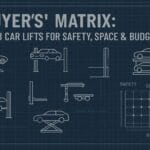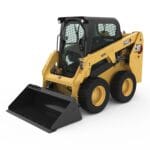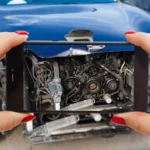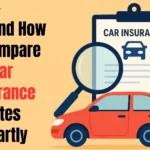Purchasing an enclosed car trailer is a significant investment for car enthusiasts, motorsports enthusiasts, and businesses. Whether you need a trailer for transporting classic cars, race cars, or any other valuable cargo, it’s crucial to choose the right trailer that meets your specific needs. With a multitude of options available in the market, it can be overwhelming to determine which features are essential. In this article, we’ll explore the top 10 features to consider when buying an enclosed car trailer, helping you make an informed decision and ensure your precious cargo is transported safely and efficiently.

1. Size and Capacity
The first feature to consider when buying an enclosed car trailer is its size and capacity. Determine the dimensions and weight of the vehicles or cargo you plan to transport to ensure they can comfortably fit within the trailer. Consider the height, width, and length of the trailer, as well as its maximum load capacity. It’s advisable to choose a trailer with some additional space to accommodate any future needs or modifications.
2. Construction and Durability
The construction and durability of the trailer are crucial factors in ensuring the safety and protection of your cargo. Look for trailers made from high-quality materials such as steel or aluminum, as they offer excellent strength and longevity. Additionally, consider the thickness of the walls, floors, and roofs, as well as the type of joints and reinforcements used. A sturdy and well-built trailer will withstand the rigors of transportation and provide adequate protection against external elements.
3. Security Features
When transporting valuable vehicles or cargo, security is paramount. Look for trailers that offer robust security features such as secure locking systems, reinforced doors, and tamper-proof mechanisms. Some advanced trailers even come with GPS tracking systems and alarm systems, providing an extra layer of protection against theft or unauthorized access. Ensure that the trailer you choose has adequate security measures in place to safeguard your valuable assets.
4. Suspension and Towing Stability
The suspension and towing stability of an enclosed car trailer are vital for a smooth and safe journey. Consider trailers equipped with high-quality suspension systems that can handle different terrains and road conditions. Additionally, trailers with features like independent suspension, shock absorbers, and stabilizer bars offer enhanced towing stability, minimizing the risk of swaying or fishtailing while on the road. A stable and well-balanced trailer will make your towing experience more secure and comfortable.
5. Ventilation and Climate Control
Proper ventilation and climate control are essential to prevent damage to your vehicles or cargo during transportation. Look for trailers that feature adequate ventilation systems, such as vents, windows, or fans, to promote air circulation and prevent condensation. Climate control options like air conditioning or heating systems are also beneficial, especially when transporting sensitive cargo that requires specific temperature conditions. These features will help maintain a controlled environment within the trailer, ensuring the integrity of your cargo.
6. Accessibility and Loading Mechanisms
Consider the accessibility and loading mechanisms offered by the trailer. Look for features like ramp doors, side doors, and multiple access points to facilitate easy loading and unloading of your vehicles or cargo. The trailer should have a sturdy ramp system with an appropriate weight capacity to accommodate different vehicles. Additionally, features like removable or adjustable ramps can provide flexibility when dealing with vehicles of varying sizes or shapes. Easy accessibility and loading mechanisms save time and effort during the loading process.
7. Interior Organization and Customization Options
When considering the interior organization and customization options of an enclosed car trailer, the following features can greatly enhance the functionality and efficiency of the space:
- Shelving: Adjustable or removable shelving units provide designated storage areas for tools, equipment, or smaller items, keeping them organized and easily accessible during transportation.
- Cabinets: Built-in cabinets offer secure storage for various items, such as spare parts, cleaning supplies, or personal belongings, reducing clutter and maximizing the use of available space.
- Tie-Down Points: Strategically placed tie-down points allow you to secure your cargo safely, preventing movement or damage during transit. Look for trailers with multiple tie-down points for versatility in securing different types of cargo.
- Track Systems: Track systems, typically installed along the walls or the floor, provide flexibility in attaching accessories or securing cargo using straps, bungee cords, or hooks. They allow you to customize the interior layout and ensure that items are properly secured.
- Overhead Storage: Some trailers offer overhead storage compartments or racks, which are ideal for storing lightweight items such as helmets, safety gear, or smaller tools. Utilizing the overhead space frees up the floor area for larger items.
- Workbenches: Built-in workbenches provide a designated area for performing maintenance or repairs while on the go. Look for trailers with sturdy and durable workbenches that offer ample workspace and storage options for tools and equipment.
- Flooring Options: Consider trailers with customizable flooring options, such as non-slip surfaces or rubberized flooring, to ensure the safety of both your cargo and yourself while moving around inside the trailer.
- Interior Partitions: If you plan to transport multiple vehicles or different types of cargo, trailers with interior partitions or dividers can help separate and protect each item individually. This prevents contact between items and minimizes the risk of damage during transportation.
- Accessory Mounting Options: Consider trailers that offer mounting options for additional accessories, such as tool racks, fire extinguisher brackets, or first aid kits. These built-in mounting points ensure that essential items are securely stored and easily accessible when needed.
By choosing an enclosed car trailer with these interior organization and customization options, you can create a tailored space that efficiently accommodates your cargo, tools, and equipment. These features enhance convenience, protect your assets, and streamline your transportation process.
8. Lighting and Electrical Systems
Adequate lighting and electrical systems are essential for safe loading, unloading, and traveling with your enclosed car trailer. Ensure that the trailer has proper lighting both inside and outside, including clearance lights, brake lights, turn signals, and interior lighting. Consider trailers with a reliable electrical system that can power essential equipment or accessories you may need during transportation. Having well-functioning lighting and electrical systems enhances visibility and ensures compliance with road safety regulations.
9. Braking System
The braking system of the trailer is a crucial safety feature that should not be overlooked. Look for trailers with high-quality braking systems, such as electric or hydraulic surge brakes. Electric brakes offer more control and can be adjusted according to the towing vehicle’s requirements. Hydraulic surge brakes, on the other hand, engage the trailer brakes automatically when the towing vehicle brakes are applied. A reliable braking system improves overall safety and reduces the risk of accidents during towing.
10. Warranty and After-Sales Support
Lastly, consider the warranty and after-sales support offered by the trailer manufacturer. A reputable manufacturer will provide a comprehensive warranty that covers the trailer’s structural integrity, components, and workmanship. Additionally, inquire about the availability of spare parts and the responsiveness of the manufacturer’s customer support team. A strong warranty and reliable after-sales support to ensure peace of mind and assistance in case of any issues or concerns arising after purchasing the trailer.
Conclusion
When purchasing an enclosed car trailer, it’s essential to consider several key features to ensure a safe and efficient transportation experience. Evaluating the size and capacity, construction and durability, security features, suspension and towing stability, ventilation and climate control, accessibility and loading mechanisms, interior organization and customization options, lighting and electrical systems, braking system, and warranty and after-sales support will help you make an informed decision. By selecting a trailer that meets your specific requirements and offers these essential features, you can transport your valuable vehicles or cargo with confidence and peace of mind.








